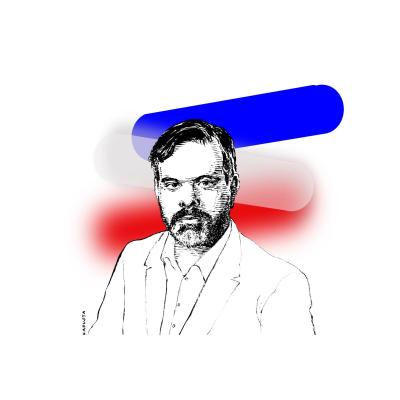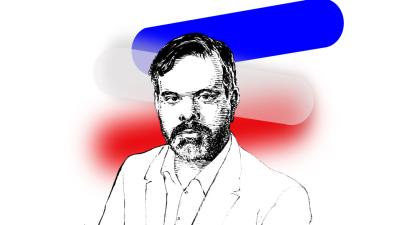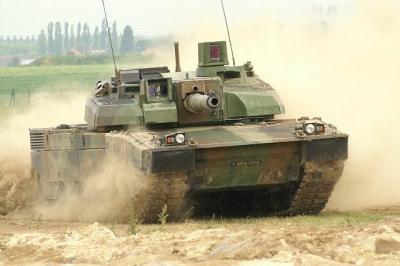Loup Viallet is an author, lecturer and analyst. A specialist in African geopolitics and international economics, he has written “La fin du franc CFA” (VA Editions, 2020) and “Après la paix” (VA Editions, 2021).
Patrick Edery: What would you say to an Eastern or Northern European who told you that African problems do not concern him?
Loup Viallet: I would say that between 2020 and 2022, eleven countries from all over Europe have combined their special forces in a unique coalition to fight terrorism in the Sahel in support of Operation Barkhane (a military operation conducted in the Sahel and Sahara by the French Army against jihadist groups) and at the request of local governments. The Takuba force was alternately commanded by France and Sweden. This embryo of a common defence was abruptly disbanded due to the lack of a clear, concerted strategy adapted to a dynamically evolving environment. However, the reasons for the joint participation of Estonia, Denmark, Sweden, Hungary, Romania, the Czech Republic, Belgium, Portugal, France and Italy are more relevant than ever, even if public opinion is slow to become fully aware of them.
Africa has become Europe's Achilles heel. The main security threats to our continent are not only on the Eastern front, on the borders of the Russian Federation. They are also located at our southern gate, in our Mediterranean and African neighbourhood. The fragmentation of Europe's southern gateway represents a common strategic challenge for European nations, whether they are located in the west or in the east.
I wrote my book Après la paix to explain how African weaknesses had become (again) major sources of destabilisation for the European continent in general and France in particular. Since the book’s publication, the jihadist hotbeds have grown stronger in the Sahel, Wagner's Russian mercenaries have taken up a definitive position in Mali and the junta governing Burkina Faso has just placed itself under the protection of the Kremlin. Algeria has strengthened its ties with the Russian regime and has invited Russian warships to train opposite the European coast - and Russian special forces to the Moroccan-Algerian border. The Kingdom of Morocco has stepped up its migration pressure at the Spanish border to impose its political agenda on European capitals.
For the populations of southern Mediterranean, economic and social conditions have worsened with the inflation of energy and food prices, caused by the Chinese confinements and the Russian blockade of Ukrainian ports. The United Nations Refugee Agency estimated last year that 2.5 million Sahelians (Malians, Burkinabés, Chadians, Nigerians, Mauritanians, etc.) were forced to flee their homes because of the fragmentation of their region. This economic, political, security and migratory disaster is being exploited by a single power - Russia - to profit from the continent's raw materials and to destabilise Europe through its neighbourhood:.
You denounce Russian imperialism in Eastern Europe but also in Africa; is there a link between the two?
Russian imperialism seeks to take our continent in its stranglehold by destabilising our external borders. Putin is applying a strategy of chaos in which we are collectively the target. In the East, through military interference, informational destabilisation, corruption and intimidation, which began as soon as he came to power in the 2000s, and of course through the conventional war launched 11 months ago against Ukraine. In the South, the Russian influence strategy has been developing for a decade. Even if it is less visible, it is no less harmful. Over a few years, Moscow has become one of the continent's leading arms suppliers, has established itself in Libya, and has opened a naval base and an air base in Syria. Its influence extends from the western to the eastern Mediterranean. In sub-Saharan Africa, the neo-colonialist Wagner group (finance, communication, mercenaries) is active in Sudan, Zimbabwe, Madagascar, DRC, Mozambique, Central African Republic and Mali. The last two states are dominions of Russia.
Our neighbourhood policy is still not adapted to overcoming the security, migration, information, climate and economic challenges of the new African disorder. It cruelly lacks clarity, ambition, unity and coordination between European partners.
In contrast to the African challenge, the Russian imperialist war against Ukraine has led European leaders to an immediate awareness of their common interests. For almost a year, they have been learning to stand together. Their political unity and solidarity in managing this geopolitical challenge are the best basis on which they can seek to effectively overcome the fragmentation of their southern gate. Otherwise, Europe would find itself in the situation of a besieged citadel. We are ten years behind Russia's destabilisation strategy on our Mediterranean and African flanks.
Read also
Europe's Southern Flank Under Russian Attack
We underestimate the determination of the KGBists in power in Moscow to take revenge on the West so much that we refuse to see their attack on our southern flank.










Comments (0)